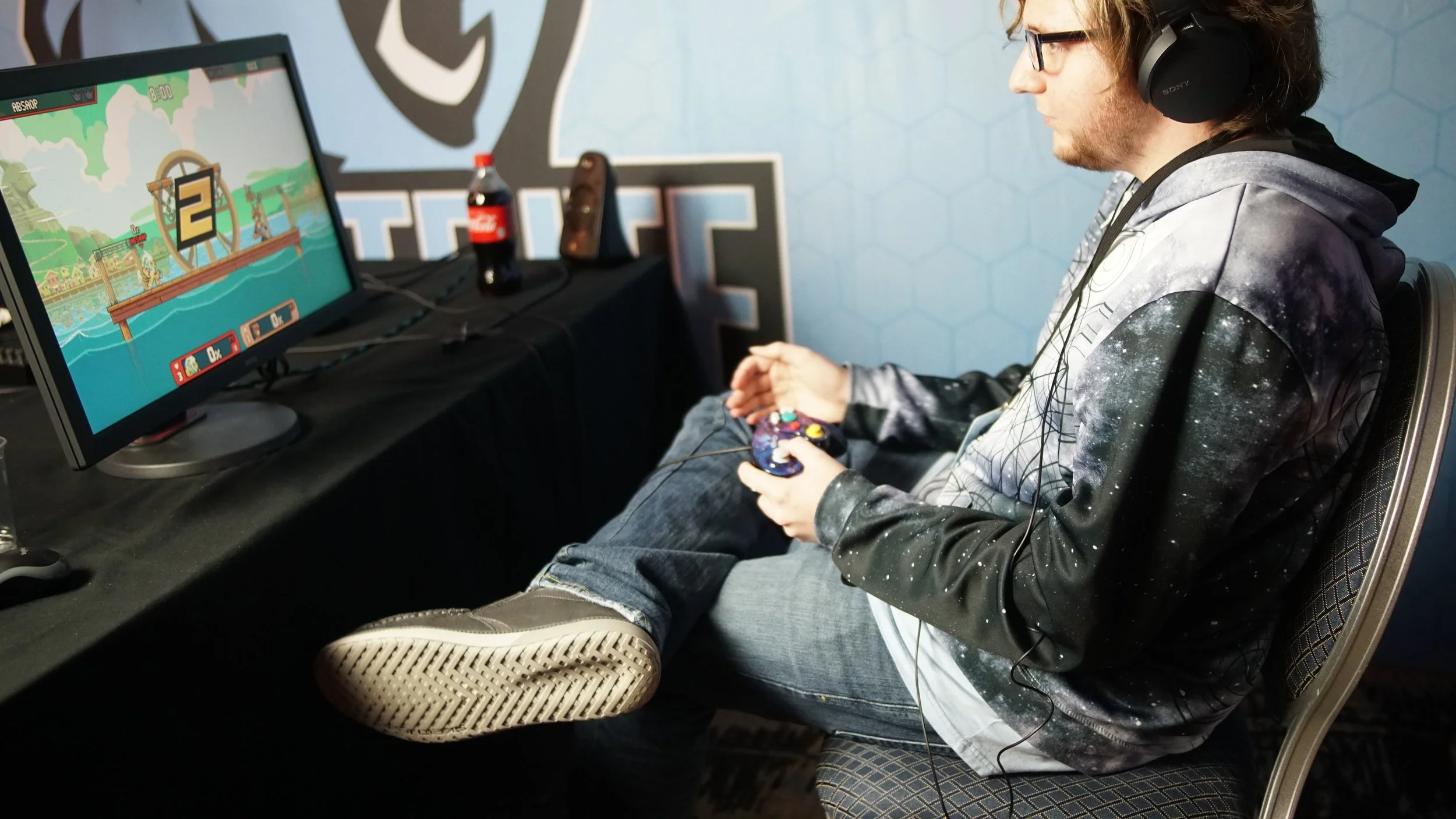Don't Play Games with Me
Do you even game, bro?
If you invited me over to your house for a casual visit, I would likely make time for that. I’m not much of one for small talk though. I love engaging conversations, not necessarily always serious ones, but just engaging ones.
Now, suppose during our visit, you turned on the television, fired up the game console and asked, “Wanna play?”. I know. It doesn’t normally happen, but just imagine with me for a second. There’s a pretty good chance I’ll indulge you and give it a go depending on what it is, but inwardly I’m probably wishing we could go back to engaging conversation. Admittedly, a guy once invited me to try his pinball machine collection, and I thought that was pretty neat. It’s just something about video games that rubs me the wrong way. As a side note, I’ve noticed anymore that teenagers get a kick out of seeing me play a video game, as if I’m an old guy or something.
When I was a kid, we had the first Nintendo, and later I was given a Sega Genesis handheld thingamajig. I had so much fun with those that I had to be told to stop, and I really had a hard time obeying that order. Yet, it’s been many years, longer than I can remember actually, since I’ve had interest in video games at all. I just don’t like them now. As an adult male, the idea of being into video games seems completely bizarre to me.
Now, I say all of this as a person who has very competitive tendencies. I’m the kind of person that video games would typically be marketed to. Apparently, I’m not alone. In an article by Reuters this past May, researchers from the Entertainment Software Association (ESA) determined that gaming is no longer just the realm of children. Smart phones have brought gaming into the pockets of adults more than ever. “Nearly 65 percent of U.S. adults, or more than 164 million people, play games. The most popular genre is casual games, with 60 percent of players gaming on their smartphones…”
So, what made the change in my interests? How is it that I had such a hard time putting down the games as a child but as an adult I find them uninteresting, and even irritating? Well, I wish I could say it had something to do with me just being a bastion of holy character, but the answer is that I don’t really know. I suspect that I must have at some point as a young kid been viewed contemptuously by someone who thought I took a game too seriously. I think that’s what bothers me- when a guy starts to take it too seriously. It just looks dumb. To be that guy, feels dumb.
I have on occasion played a game with someone as an adult, but a few minutes in, I start to feel dumb. I just feel like I’m giving the thing more importance and validation than it deserves. Playing it with someone else seems better than playing alone. At least with someone else, there’s a sense of being together, but alone, it just feels really, really dumb like some kind of silly, private indulgence. I literally can’t tolerate doing it.
I’ve actually had to counsel families before who were all addicted to smartphone games. They affirmed to me that it was ruining their productivity and sense of family. I’ve heard of marriages being destroyed because a man took gaming too seriously. I’ve heard young people complain with disrespectful tones about fathers who are more into gaming than they are. It just seems that no matter how much society tries to normalize adult men who are gamers, society still doesn’t respect adult men who are gamers.
Obviously, some games are not wholesome, but gaming is also a questionable use of time. I’m willing to accept that some entertainment and relaxation in life is a good thing in proper proportion. While gaming might not be my choice of entertainment, for some there seems to be some wholesome game choices that exist. I can accept that. Some who claim that video gaming is always a poor use of time might take a closer look at their own forms of entertainment. It’s likely no more productive than video games. That’s one of the points of entertainment- to momentarily stop being productive.
The Bible does speak to the subject of ones wise use of time (Ephesians 5:16, Romans 13:11, Colossians 4:5, Proverbs 10:4, 12:24, 13:4, 22:29, 1 Kings 11:28). There are practical life benefits to using time wisely. After all, you never get time back once it’s gone.
What makes video gaming in one sense a poorer choice than say, going to ball game, fishing, or hiking is that gaming is literally deigned to be easily addictive. Things like unlocking levels, rewards, badges, etc. are all designed to keep you engaged for longer periods of time, and it’s right in your pocket. So, you can literally fill every spare moment with more gaming. While more “analog” forms of entertainment may not always be any more productive than a video game, they’re typically not as habit forming or easily accessible. I’m sure there are exceptions here. I’m just speaking generally.
All of this has made it so people no longer know how to endure silence or be alone with their thoughts. One young person once told me that when he finally sat idly in a silent room, his ears started ringing because he wasn’t used to a complete absence of stimuli.
So, I recommend several practical things:
1. Default to the analog world. I will always recommend an activity in “meatspace” over one in digital space. Art of Manliness has a great article about that here. You’ll find that in real life you can have experiences and create memories that have an impact, and often not with the imminent threat of addiction like with technology.
2. Imagine the Lord is looking over your shoulder while you’re playing the game. Do you feel dumb? Draw your own conclusion from that. After all, He legitimately IS seeing what you’re doing, and He has an opinion about it (Proverbs 5:21, 9:10, 15:3, Job 34:21; Hebrews 4:13).
3. If you do play video games, play them with someone else. This makes addiction slightly more difficult because it involves two people now. And it keeps gaming in the realm of friendly activity and not private indulgence.
4. Avoid the smartphone games. These are just too accessible. Delete them all, or they’ll always be calling to you.
5. Learn to recognize the moment that the game tries to change your mind. There always comes this subtle moment when you’ve had fun, and you’re satisfied, and stopping wouldn’t bother you, but then the game gives you a call to action. Stop right then.
6. Value respect. While society might accept the concept of adult men gamers as normal, that doesn’t mean they respect it. Be the kind of guy that people will someday ask life advice from. Honestly, it’s hard to take seriously a man whose mind is pre-occupied with games. He’s admitting that his mind isn’t important enough to be involved in more valuable matters in his spare moments throughout the day. I’d want life advise from a man whose mind in normally a commodity.
7. Learn to view your autonomy as a personal right to be protected, and the game as another person. Whenever you yield to the game for yet another try, you are yielding your autonomy a little to someone else. Your internal self-governing mechanism says, “That’s enough now”, but the game says, “You can’t go yet”. Looking at it this way will cause you to start seeing the game as an enemy combatant, a clandestine little operator trying to undermine your government from the inside.
The overall idea with anything that threatens to usurp your autonomy is to make it hard to do. Don’t grease the slide to the addiction. With making all of these things priorities, you might end up giving up video games altogether!
As always, if you’ve found this helpful, please consider sharing it with a friend.



